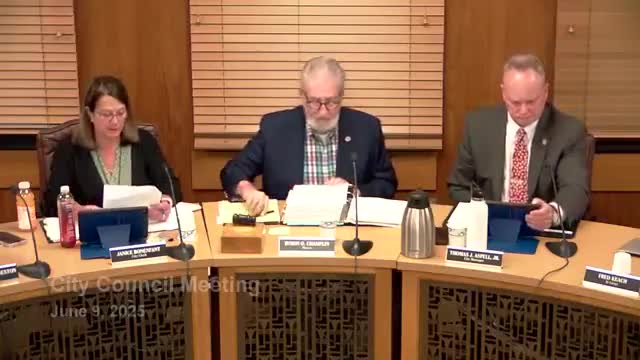Article not found
This article is no longer available. But don't worry—we've gathered other articles that discuss the same topic.

Planning board urges review of Concord impact-fee ordinance; council accepts report and will consider ad hoc review

Council approves conversion of leased garage spaces to permit system at Store Street Garage

Council accepts $10,000 Lynch Family donation for White Park playground; fundraising exceeded shortfall

Council authorizes lease for 10-unit T-hangar at Concord Municipal Airport

Council amends Board of Ethics ordinance to remove city solicitor as ex officio member and change finding language

